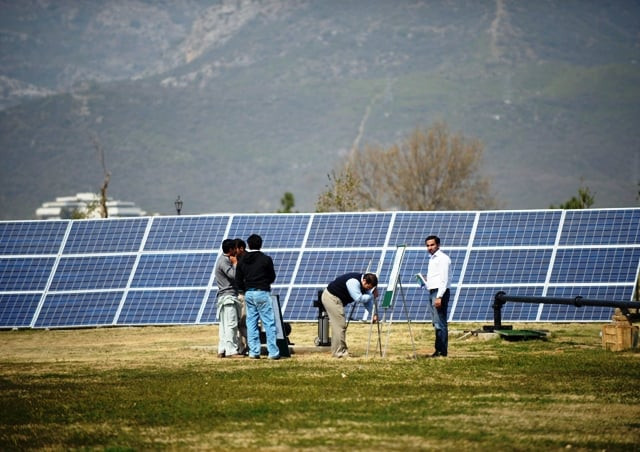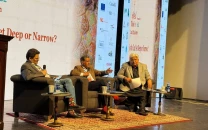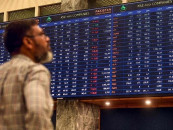Tariffs for solar, wind power projects set to fall further
NEPRA will hold competitive bidding among project sponsors for determining the tariff

NEPRA will hold competitive bidding among project sponsors for determining the tariff. PHOTO: AFP
“Sponsors of new solar and wind power projects, who will approach the National Electric Power Regulatory Authority (Nepra) for the announcement of reference tariff, will be asked to participate in a bidding process for the award of tariff,” a senior government official revealed.
Earlier, the tariff mechanism for renewable energy projects was based on the cost-plus formula, which was later changed to upfront tariff. This system is now being further upgraded which will require competitive bidding to revise the tariff downwards.
Pakistan has ‘2.9 million MW solar energy potential’
“In view of the consistent interest of domestic and foreign investors in renewable energy projects and declining prices of such technologies, the competitive bidding for wind and solar power projects will push the tariff down further,” the official remarked.
However, for those solar power projects for which Letter of Intent (LoI) has already been issued and which are at advance stages of implementation, the government will apply the cost-plus tariff formula, believing that policy change for these projects may put incoming investment into jeopardy.
“For these solar projects, Nepra will be asked to allow the application of cost-plus tariff,” the official said.
Earlier, Nepra determined upfront tariffs on the basis of international pricing, domestic conditions and consultation with stakeholders through public hearing.
Now, prices of solar and wind power systems are coming down with the advancement in technology alongside improved efficiency.
The official pointed out that many countries had now shifted from upfront and feed-in tariffs to competitive bidding, leading to lower tariff rates because of competition.
In the light of recommendations made by the Ministry of Water and Power and other stakeholders, Nepra has announced that it will hold competitive bidding for determining tariffs of new wind and solar projects.
It has set the benchmark tariff at 6.7 US cents per unit for carrying out reverse/competitive bidding for wind power projects. It has also directed the agencies concerned to prepare bidding documents in line with the 2014 competitive bidding regulations.
Experts highlight benefits of utilising renewable energy
The shift in policy has not come easy. The government faced impediments and challenges on its way towards adopting the competitive bidding system. The Renewable Energy Policy 2006 stipulates two modes of project development. One is unsolicited mode under which raw site proposals are made by investors and the other is solicited mode which is based on bidding for government-selected sites.
It had been decided to allow those project sponsors who had got LOIs under the unsolicited mode to compete in the bidding process in the first stage. However, that required amendments to the policy because it permitted competitive bidding only in the solicited mode.
Opposing the move, the government of Sindh filed a motion for leave against Nepra’s decision on holding competitive bidding for wind power projects. The provincial government sought announcement of upfront tariff on the ground that the renewable energy policy did not allow reverse/competitive bidding for unsolicited projects.
Consequently, the federal government decided to allow cost-plus tariff for those projects that had got LOIs and competitive bidding for new solar and wind power plants.
Published in The Express Tribune, May 16th, 2017.
Like Business on Facebook, follow @TribuneBiz on Twitter to stay informed and join in the conversation.



















COMMENTS
Comments are moderated and generally will be posted if they are on-topic and not abusive.
For more information, please see our Comments FAQ